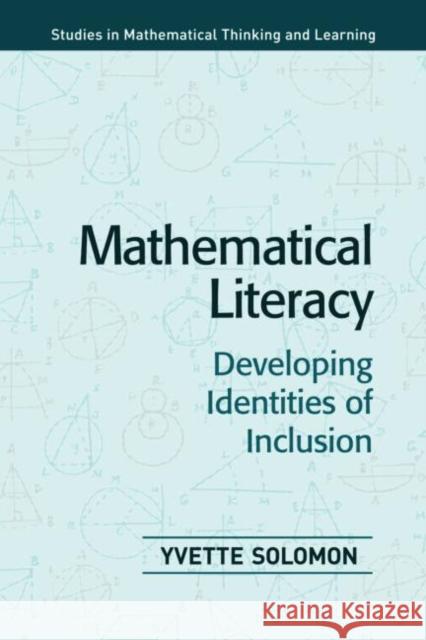Mathematical Literacy: Developing Identities of Inclusion » książka
Mathematical Literacy: Developing Identities of Inclusion
ISBN-13: 9780805846874 / Angielski / Miękka / 2008 / 256 str.
Mathematical Literacy: Developing Identities of Inclusion
ISBN-13: 9780805846874 / Angielski / Miękka / 2008 / 256 str.
(netto: 275,16 VAT: 5%)
Najniższa cena z 30 dni: 285,39
ok. 22 dni roboczych.
Darmowa dostawa!
Why do so many learners, even those who are successful, feel that they are outsiders in the world of mathematics? Taking the central importance of language in the development of mathematical understanding as its starting point, Mathematical Literacy explores students' experiences of doing mathematics from primary school to university - what they think mathematics is, how it is presented to them, and what they feel about it. Building on a range of theory which focuses on community, knowledge, and identity, the author examines two particular issues: the relationship between language, learning, and mathematical knowledge, and the relationship between identity, equity, and processes of exclusion/inclusion. In this comprehensive and accessible book, the author extends our understanding of the process of gaining mathematical fluency, and provides tools for an exploration of mathematics learning across different groups in different social contexts. Mathematical Literacy's analysis of how learners develop particular relationships with the subject, and what we might do to promote equity through the development of positive relationships, is of interest across all sectors of education-to researchers, teacher educators, and university educators.
The concept of mathematical literacy is central to the book in that it emphasizes a view of mathematics as a social practice and of mathematical learning as situated learning. An exploration of mathematical literacy begins with the recognition of the central importance of language in mathematical understanding. Drawing on concepts, theory, and research in the field of literacy allows us to gain further insights into the process of gaining mathematical fluency, and provides tools for an exploration of mathematics learning across the life span and across different groups in different social contexts. The book will draw on new data from early years to university-level sectors collected with these issues in mind to provide a further contextual dimension to explanations of the development of mathematics understanding, by examining the of learning mathematics as a question of entering into particular learning cultures.











